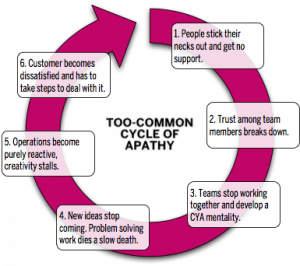There are 3 things that spark my attention faster than anything.
1. Coffee
2. Zombies
3.
Damn ADD robbed me of my thought!
But I digress.
This morning, I read a blog post by Elizabeth Harrin titled Zombie Project Management. It reminded me of a series I read by Geoff Crane titled 9 Destructive Project Management Behaviors, which you can get for free by following the link. I really enjoyed her post and I hope you go over to her website and check it out.
Elizabeth wrote
So, what is Zombie PM? Does this sound like someone you know?
They do exactly what they are told without challenging anythingThey don’t come up with original ideasThey don’t suggest ways to improve the project management processesThey don’t follow up on actions – they simply assume they will get doneThey update and issue the plan in a format that most of the team can’t read or understandThey work on projects that deliver no business valueThey go through the motions of being a project manager but without any critical thinking applied
To answer Elizabeth's question, yes, I see these zombies every day. These zombies contribute to what is defined as the Iron Law of Bureaucracy. It states, in any bureaucratic organization there will be two kinds of people: those who work to further the actual goals of the organization, and those who work for the organization itself. One example in project management, would be PMs who work hard and look for ways to deliver value to the customer, versus PMs who work to protect any defined process (including those with no value). The Iron Law states that in ALL cases, the second type of person will always gain control of the organization, and will always write the rules under which the organization functions.
These zombies don't eat brains, they eat time and resources in the name of project management! So, sooner or later, zombies will take over your project. Be afraid. Be very afraid!


